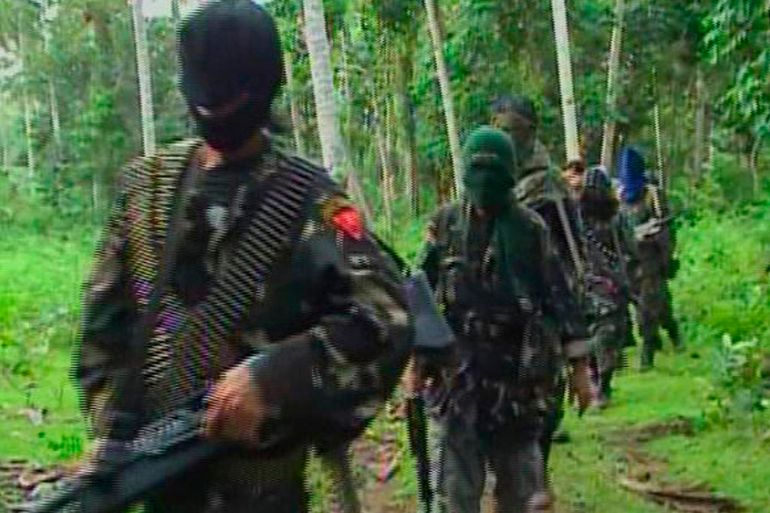Rodrigo Duterte apologises to Germany over beheading
Abu Sayyaf group decapitated hostage Jurgen Kantner and videotaped the killing after ransom demands went unmet.

Philippine President Rodrigo Duterte apologised on Tuesday for failing to save an elderly German hostage who was beheaded by the armed Abu Sayyaf group but insisted ransoms should not be paid.
Abu Sayyaf – a kidnap-for-ransom network in the southern Philippines that has declared allegiance to the Islamic State of Iraq and the Levant (ISIL) group – killed Jurgen Gustav Kantner, 70, on Sunday after demands for $600,000 were not met.
Keep reading
list of 4 itemsWomen linked to Abu Sayyaf suicide bombings arrested in Sulu
Philippines arrests woman suspected of planning suicide attack
Army says two women carried out Jolo bombings in the Philippines
German Chancellor Angela Merkel condemned the killing as an “abominable act”.
Addressing the German government and Kantner’s family, Duterte said he was “very sorry” about his death, adding the military had stepped up an offensive against Abu Sayyaf in an effort to save him.
READ MORE: Abu Sayyaf video ‘shows beheading of German hostage’
“We really tried our best. We have been there. The military operation has been going on for some time already, but we have failed. That has to be admitted,” Duterte told reporters.
|
|
“But it’s a matter of policy that we do not surrender to the demands of paying ransom. It will just increase the numbers,” he said, referring to the size of the group. “If you give in and pay, there will be more victims and no end in sight.”
Abu Sayyaf has been kidnapping foreigners and locals for decades and holding them for ransom on its remote island strongholds in the southern Philippines.
Kantner’s vessel, the Rockall, was found drifting last November off the southern Philippines with the body of his female companion, Sabine Merz, who had been shot.
Military officials on Tuesday said they were still searching for his body and vowed to “relentlessly pursue” the assailants and rescue more than 20 other hostages.
READ MORE: Inside Abu Sayyaf – Blood, drugs and conspiracies
Abu Sayyaf has earned many millions of dollars in ransom payments and rarely releases a hostage unless money is paid. Relatives and employers of hostages typically pay, rather than governments.
Two Canadian men were beheaded by the group last year and a Norwegian man was released.
Duterte also repeated his request for China to help patrol regional waters to stop more kidnappings, saying Beijing had not given him a response.
Duterte specified he would like China to patrol the Malacca Strait, one of the world’s busiest shipping lanes between the Malaysian peninsula and Indonesia’s Sumatra island.
Abu Sayyaf emerged in the early 1990s as an offshoot of a separatist rebellion by minority Moro Muslims in the predominantly Roman Catholic nation’s south.
|
|